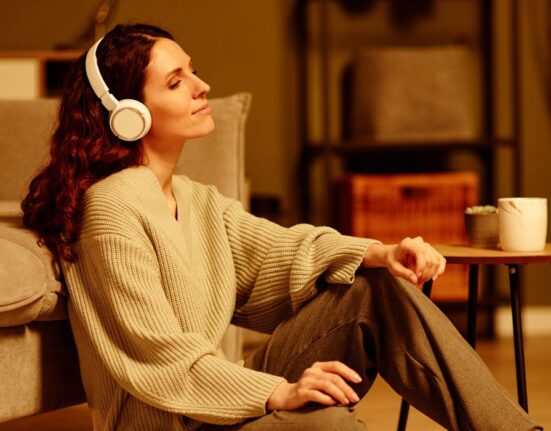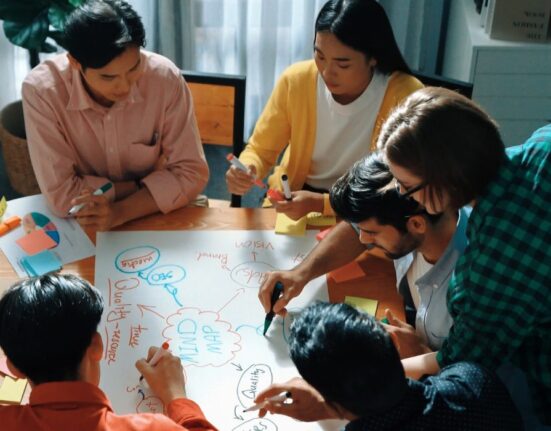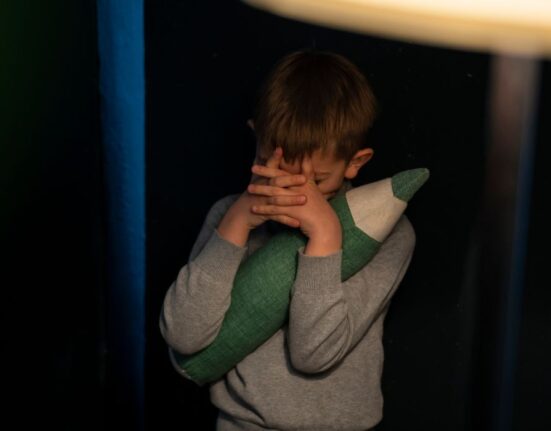Mitai was not allowed to go out for Dev Deepawali, her most-awaited festival. Why? Because it would be at night with too many boys around, and she wouldn’t be safe there. What if she faces eve-teasing? But is it really the ultimate solution? Is it protection or a form of hindrance and limitation?
Most women, at some point in their lives, have felt unsafe doing something as simple as passing by a street. Eve-teasing, especially in South Asia, is not just a minor inconvenience but the reality faced by many women. And while society watches quietly and likes to blame the victim herself, its impacts leave deep scars in their lives. Having a deeper look into the psychology behind Eve-teasing can help us not only understand the why and how it happens, but also can be immensely helpful in supporting individuals who face it in their lives.
What is Eve-Teasing?
According to the Indian government, it is “when a man by words either spoken or by signs and/or by visible representation or by gesture does any act in public space, or signs, recites or utters any indecent words or song or ballad in any public place to the annoyance of any woman.” (Dhillon & Bakaya, 2014) “A set of behaviours that is construed as an insult and an act of humiliation of the female sex” (Ghosh, 1990).
It often occurs in broad daylight, even in a busy street right in front of everyone else and is very common, with reports showing nearly 50 to 100% women claiming to be victims of it (Akhtar, 2013; Baxi, 2001; Jagori & UN Women, 2011; Leach & Sitaram, 2007). It can be in the form of nonverbal, verbal, physical, or visual sexual attention, intimidation, or coercion acts (Talboys, Kaur, VanDerslice, Gren, Bhattacharya & Alder, 2017). “Eve teasing includes cat calling, lewd remarks, and inappropriate sexual contact such as rubbing and fondling.” (Natarajan, 2016)
Read More: Psychological Perspective on Sexual Coercion and Rape
What Encourages Eve-Teasing
- Lack of education and awareness: The lack of awareness, as well as awareness and understanding of what is right and wrong, is a key factor that influences and encourages eve-teasing behaviour.
- Lack of law enforcement: The severe lack of clearly established rules and punishment in breach of said rules regarding unconsented behaviour towards women further encourages such behaviour among individuals
- Gender inequality: Indian society is mostly patriarchal. It established a clear difference between males and females, with males being considered much higher, being given better positions than women, who are believed to be inherently less. These deep-rooted beliefs further support eve-teasing behaviour.
- Cultural norms: Cultural norms play a big role in what is considered acceptable or otherwise in a society. “Traditional gender roles, patriarchal societal norms, and the objectification of women in media and popular culture contribute to the reinforcement of negative attitudes towards women”(Kumar & Pandey, 2023).
Read More: Gender Norms and Self-Concept in India
Impacts of Eve-teasing
- Lower self-worth and esteem: A study done by Laroiya and Arya found a positive correlation between eve-teasing and self-confidence, i.e, victims of eve-teasing often have to deal with feelings of shame, fear and a lowered sense of self-confidence, esteem and worth. (Laroiya & Arya, 2017). “Among the 36 (40.4%) interview participants who reported eve teasing, 61.1% reported feelings of anger, 47.2% reported feelings of shame or humiliation, and more than one third reported feelings of fear, worry, or tension.” (Talboys et al., 2017).
- Lesser participation: Eve-teasing often results in lesser participation of women in social spaces like school and workplace as their mobility is restricted in the name of bringing dishonour to their families by being seen out and teased.
- Mental health challenges: Research studies have found eve-teasing to negatively impact the mental health of young women, especially those who have faced childhood adversities (Talboys et al., 2016). These mental health challenges include severe anxiety, depressive symptoms and other disorders.
- Suicidal ideation: In case of extreme conditions, there is a higher chance of suicidal thoughts and tendencies. In a study published in Annals of Global Health, it was reported that nearly 21% of the women had an increased risk of suicidal ideation. (Talboys et al., 2016).
Read More: How Workplace Harassment Affects Mental Health
Preventing Eve-Teasing
1. Early Intervention
Children are impressionable. In a society or culture that likes to demean women and objectify them as something lesser than their male counterparts, a child is likely to learn the same. As Bandura’s Social learning theory suggests, a child growing up in an environment that is filled with mistreatment and violence against women will grow up to do the same. That’s why it is necessary to educate them from an early age about justice and equity for women. This can be done through training and awareness programs.
Read More: Violence against women, Mental health consequences, and Rehabilitation strategies
2. Role of Authority
Authorities such as institutions, organisations, as well as government bodies should actively promote policies that promote women’s welfare, address issues of sexual harassment and consider eve-teasing and any other unconsented acts punishable.
3. Reporting
A lot of eve-teasing cases go unreported due to fear of retribution, family and societal pressure, etc. There should always be an attempt to make a safe space that encourages reporting, where a victim can be comfortable enough to share their experiences.
4. Resources
Ensuring that the victims are provided with adequate resources for help and support is essential. This can be done through collaborations with local authorities, helplines and other organisations that focus on providing relief to victims of sexual abuse and deal with their active promotion and upliftment. (Kumar & Pandey, 2023).
Conclusion
Eve-teasing is a problem of modern society that includes all those signs and behaviours that take place against women, often in broad daylight and in the presence of others, intended to bring them humiliation and harm. Looking into its psychological basis, eve-teasing can be caused as well as encouraged by numerous factors like lack of education and awareness, lack of clearly established laws, gender inequality, cultural norms and other social factors.
It severely impacts individuals by inducing a sense of shame, humiliation, lower self-worth and esteem, lesser participation by hindering mobility, mental health challenges and in extreme conditions, even suicidal ideation. Some techniques to reduce eve-teasing and similar non-consented behaviour involve stricter policies against eve-teasing, early intervention, encouraging reporting, and providing resources to victims.
Eve-teasing is a serious problem in South Asia, the severely negative impacts of which are immense and far-reaching. It requires the collective efforts of all members of society and culture to minimise it and promote the welfare of women.
FAQs
1. What is eve-teasing?
Eve-teasing refers to all those behaviours and actions taken against women and their consent to instil feelings of shame, humiliation or insult them.
2. Why does eve teasing occur?
Lack of education and awareness, lack of clearly established laws, gender inequality, cultural norms and various other social factors cause eve-teasing.
3. How does eve teasing impact the victims?
It impacts individuals by inducing a sense of shame, humiliation, lower self-worth and esteem, lesser participation by hindering mobility, mental health challenges and in extreme conditions, even suicidal ideation.
References +
Talboys, S. L., Kaur, M., VanDerslice, J., Gren, L. H., Bhattacharya, H., & Alder, S. C. (2017). What Is Eve Teasing? A Mixed Methods Study of Sexual Harassment of Young Women in the Rural Indian Context. Sage Open, 7(1). https://doi.org/10.1177/2158244017697168
Ghosh D. (2011). Eve teasing: Role of the patriarchal system of society. Journal of the Indian Academy of Applied Psychology, 37, 100-107.
Kumar, A., & Pandey, A. (2023, October). Understanding eve teasing: An insight into sexual harassment of women in public places. International Journal of Research and Analytical Reviews, 10(4). https://www.researchgate.net/publication/374663739_Understanding_Eve_Teasi ng_An_Insight_into_Sexual_Harassment_of_Women_in_Public_Places
Aswathy, J. B. (2024). Eve teasing: Different perspectives. International Journal of Research Publication and Reviews, 5(12), 1893–1898. https://doi.org/10.55248/gengpi.5.1224.3520
Talboys, S., Kaur, M., VanDerslice, J., Gren, L. H., Bhattacharya, H., Sandhu, A. K., & Alder, S. C. (2016). Is eve-teasing a public health problem? Public sexual harassment in rural India and its association with common mental disorders and suicide ideation among young women ages 15-24. Annals of Global Health, 82(3), 561–562. https://doi.org/10.1016/j.aogh.2016.04.508













Leave feedback about this